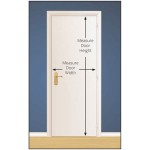How to Start a Career in Interior Design Without a Degree
Embarking on a career in interior design without a formal degree requires determination and a strategic approach. While a degree can provide a solid foundation, it's not an absolute prerequisite for success in this field. Here's a comprehensive guide to help you navigate the path to becoming an interior designer without a traditional qualification.
Develop a Strong Portfolio
A portfolio is a showcase of your design skills and creativity. It serves as a tangible representation of your abilities and can help you secure clients and employment opportunities. Start by creating a portfolio that includes a variety of projects, demonstrating your range and versatility. Consider incorporating residential, commercial, and hospitality projects to showcase your adaptability.
Obtain Hands-On Experience
Practical experience is invaluable in the field of interior design. Seek opportunities to gain hands-on experience by volunteering at design firms, working as an assistant to experienced designers, or starting your own freelance projects. These experiences will provide you with essential knowledge and skills that cannot be acquired solely through online courses or books.
Master Industry Software
Proficiency in industry-standard software is crucial for interior designers. Learn to use programs such as AutoCAD, SketchUp, and Adobe Creative Suite (Photoshop, Illustrator, and InDesign) to create 2D and 3D designs, floor plans, and presentations. Familiarity with these tools will enhance your efficiency and productivity.
Build a Professional Network
Networking is essential for any career, but it holds particular importance in the design industry. Attend industry events, join professional organizations, and connect with other designers, architects, contractors, and suppliers. Building relationships within the field can lead to potential collaborations, referrals, and job opportunities.
Stay Updated on Design Trends
Interior design is constantly evolving, with new trends and styles emerging regularly. Stay abreast of the latest industry innovations by reading design magazines, attending trade shows, and following design influencers on social media. This knowledge will help you stay relevant and adapt to changing client needs.
Consider Online Courses and Certifications
Online courses and certifications can supplement your practical experience and provide you with additional knowledge and skills. There are various reputable institutions offering online programs that cover topics such as interior design principles, color theory, lighting design, and furniture selection. These courses can enhance your credibility and demonstrate your commitment to professional development.
Seek Mentorship and Guidance
Find a mentor, such as an experienced interior designer or industry professional, who can provide guidance, support, and valuable insights. A mentor can share their knowledge, provide feedback on your work, and help you navigate the challenges of starting a career in interior design.

How To Become An Interior Designer Without A Degree

Interior Design Jobs 2024 Stop Waiting And Start Your Career

How To Become An Interior Designer Insights Archive Fairfield University News

How To Become An Interior Designer Without A Degree In 2024

How To Become An Interior Designer Career Sidekick

How To Become An Interior Decorator With No Prior Experience Qc Design School

How To Become An Interior Designer Without Any Degree Or Experience Salary Ak Makhija

Career Progression In Interior Design A Guide For Students Tiktok

How To Build A Design Career Without An Interior Degree What No One Will Tell You In Detail Interiors

Did Attending College Help My Interior Design Career
Related Posts








